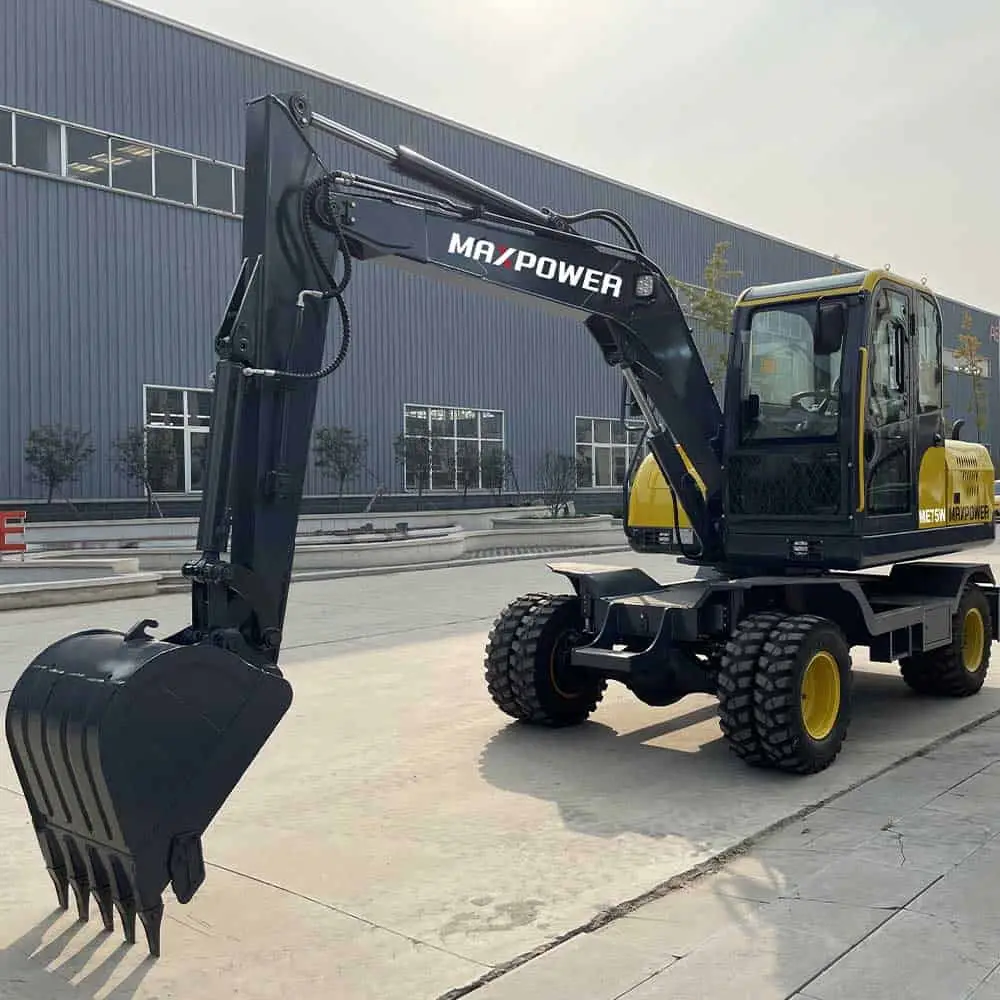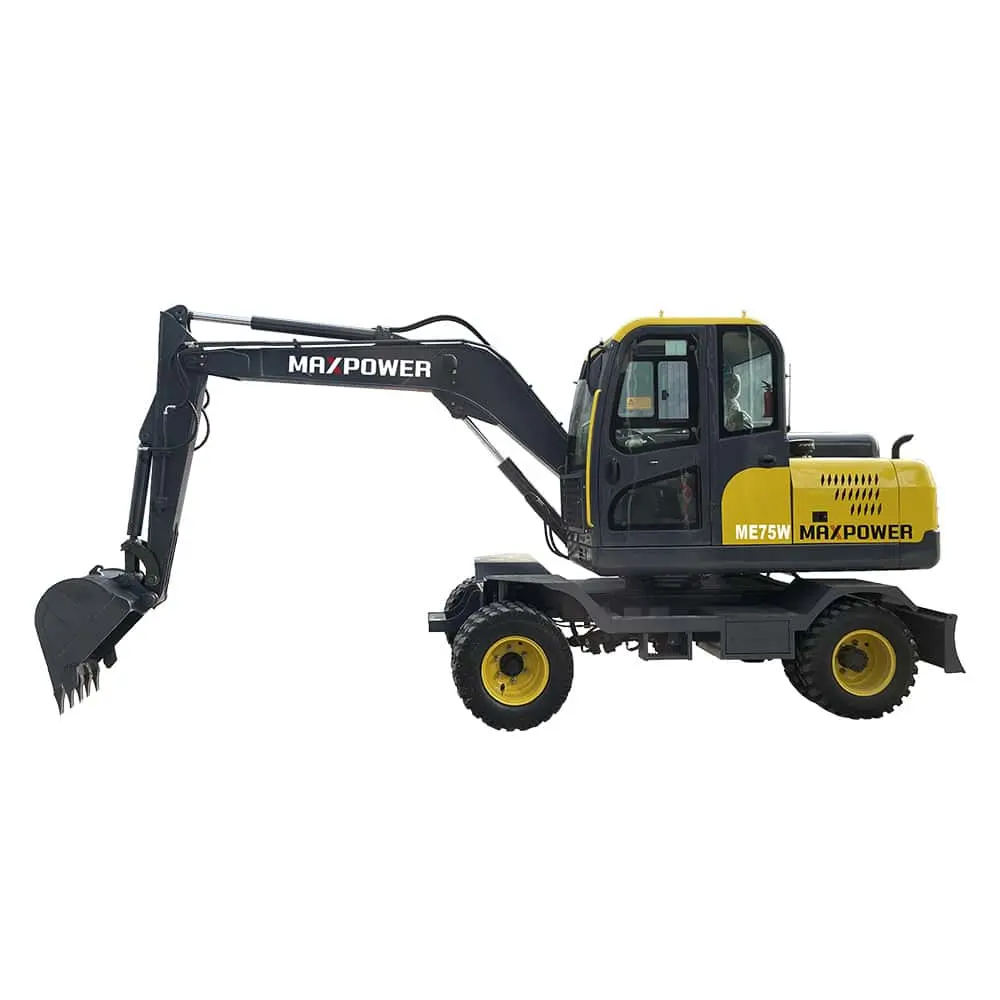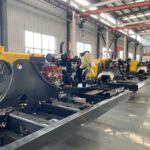Introduction
Wheel excavators, also known as mobile excavators, are powerful and versatile machines used in various industries such as construction, mining, and forestry. These machines are equipped with a large wheel for mobility, making them ideal for projects that require frequent relocation. In this blog post, we will delve into the world of wheel excavators, exploring their features, applications, benefits, and more.
Understanding Wheel Excavators

Wheel excavators are heavy-duty construction machines that combine the functions of a traditional excavator with the mobility of a wheeled vehicle. They are equipped with a rotating cab, hydraulic cylinders, and a bucket for digging and moving materials. The large wheel at the base of the excavator allows for easy maneuverability on different terrains, making them suitable for both urban and off-road projects.
Key Features of Wheel Excavators
Mobility: The most prominent feature of wheel excavators is their mobility. Unlike traditional excavators that are mounted on tracks, wheel excavators can easily move from one job site to another without the need for additional transportation equipment.
Versatility: Wheel excavators are versatile machines that can perform a wide range of tasks, including digging, lifting, and loading. Their hydraulic systems allow for precise control and efficient operation in various conditions.
Stability: Despite their large wheelbase, wheel excavators are designed to provide stability during operation. This ensures safety for the operator and allows for precise movements even on uneven terrain.
Efficiency: With their powerful engines and advanced hydraulic systems, wheel excavators offer high productivity and efficiency on the job site. They can handle heavy loads and tough materials with ease, reducing project timelines and costs.
Applications of Wheel Excavators
Wheel excavators find applications in various industries, including:
Construction: Wheel excavators are commonly used in construction projects for digging trenches, foundations, and utility lines. Their mobility and versatility make them ideal for urban construction sites with limited space.
Mining: In the mining industry, wheel excavators are used for extracting minerals, ores, and other materials from the earth. Their ability to navigate rough terrain and handle heavy loads makes them indispensable in mining operations.
Forestry: Wheel excavators play a crucial role in forestry operations such as land clearing, road construction, and timber harvesting. Their maneuverability and power make them essential equipment for forestry companies.
Benefits of Using Wheel Excavators

Increased Productivity: Wheel excavators enable faster and more efficient completion of tasks, leading to increased productivity on the job site.
Cost-Effectiveness: The versatility and mobility of wheel excavators help reduce the need for additional equipment and transportation, resulting in cost savings for project owners.
Improved Safety: The stability and control features of wheel excavators contribute to a safer working environment for operators and other personnel on the site.
Environmental Friendliness: Some wheel excavators are designed to be more fuel-efficient and emit lower levels of harmful emissions, making them environmentally friendly options for construction projects.
Comparison Table: Wheel Excavators vs. Traditional Excavators
| Feature | Wheel Excavators | Traditional Excavators |
|---|---|---|
| Mobility | High | Limited |
| Versatility | Versatile | Specific |
| Stability | Good | Excellent |
| Efficiency | High | Moderate |
Conclusion
In conclusion, wheel excavators are versatile machines that offer mobility, efficiency, and stability for a wide range of construction, mining, and forestry projects. Their unique design and features make them valuable assets for companies looking to enhance productivity and safety on the job site. By understanding the key features, applications, and benefits of wheel excavators, project owners can make informed decisions when choosing equipment for their projects.
FAQs
Q: What are the main components of a wheel excavator?
A: The main components of a wheel excavator include the chassis, boom, arm, bucket, hydraulic system, and cab with operator controls.
Q: What are the typical applications of wheel excavators?
A: Wheel excavators are commonly used for tasks such as digging trenches, excavating foundations, loading and unloading materials, and clearing debris in construction, mining, and landscaping projects.
Q: How does a wheel excavator differ from a crawler excavator?
A: The main difference between a wheel excavator and a crawler excavator lies in their mobility. Wheel excavators are equipped with wheels for movement, while crawler excavators use tracks.
Q: What are the advantages of using a wheel excavator?
A: Some advantages of wheel excavators include their mobility, ability to navigate confined spaces, versatility in various applications, and ease of transportation between job sites.
Q: Can a wheel excavator be equipped with different attachments?
A: Yes, wheel excavators can be fitted with various attachments such as buckets, grapples, hammers, and augers to suit different excavation tasks and project requirements.







-150x150.webp)
